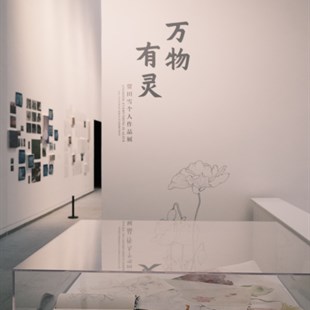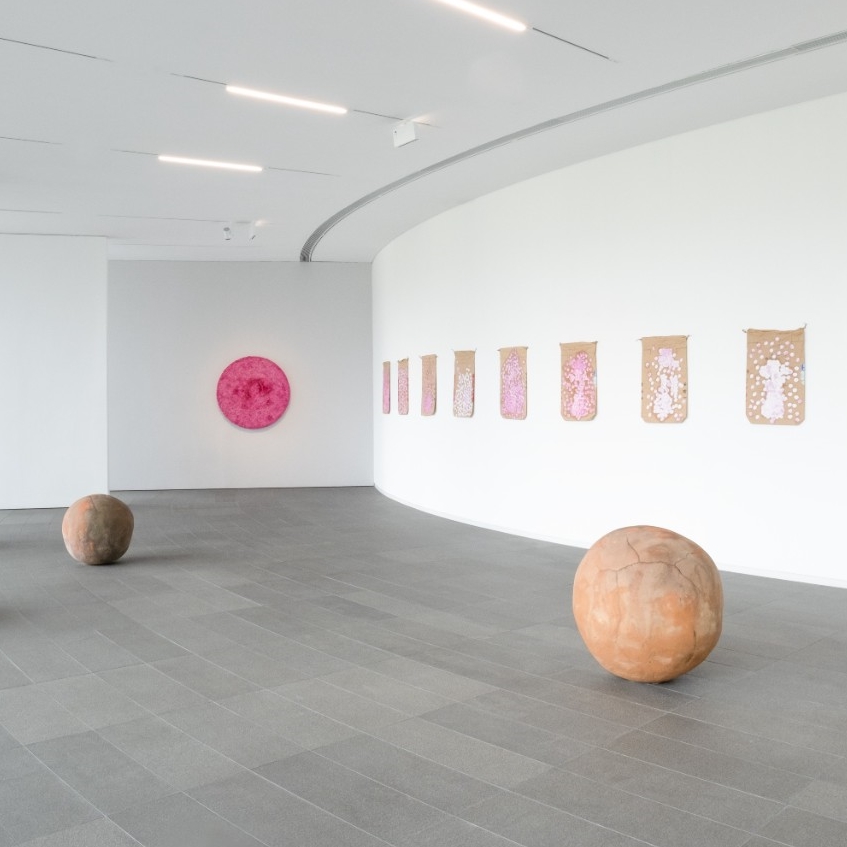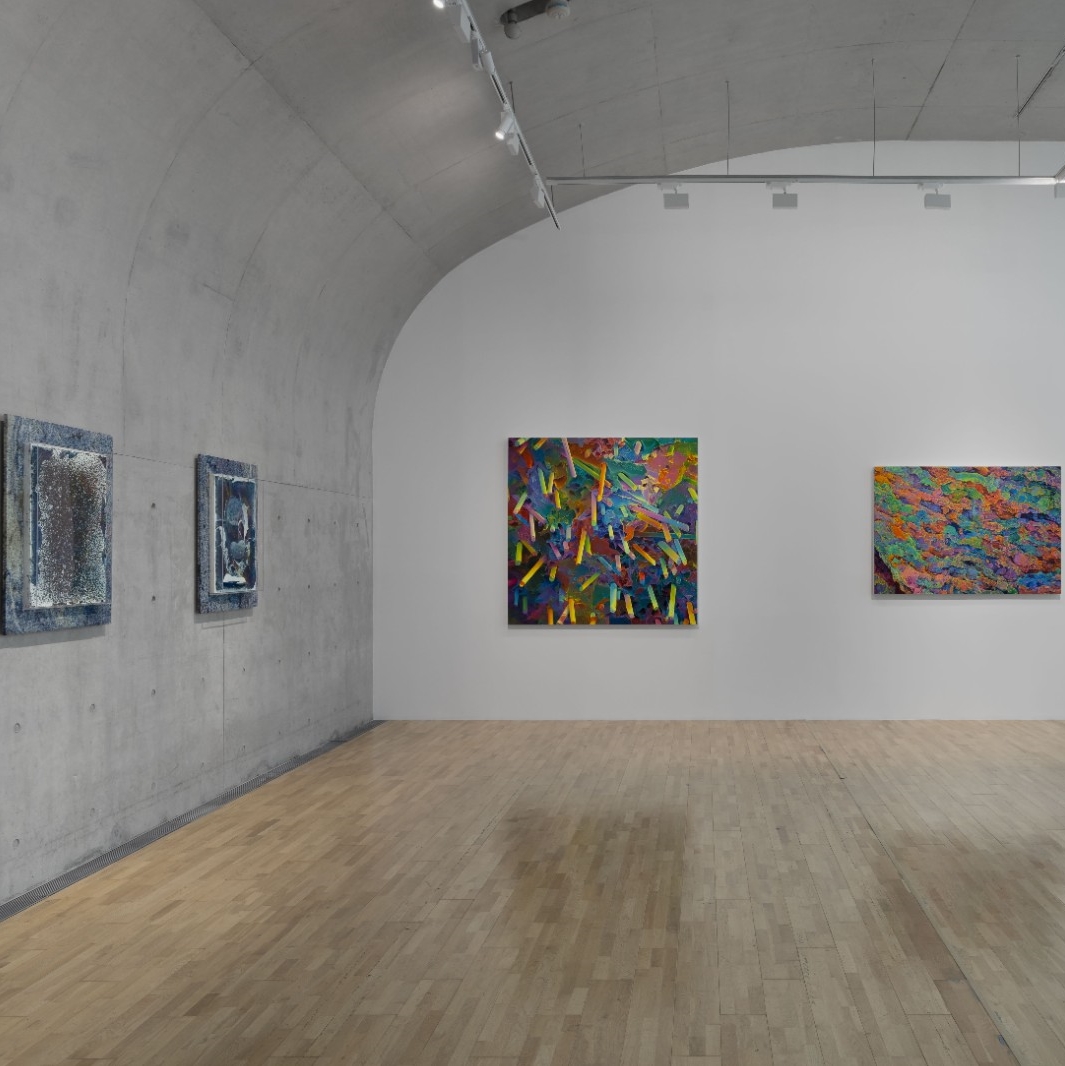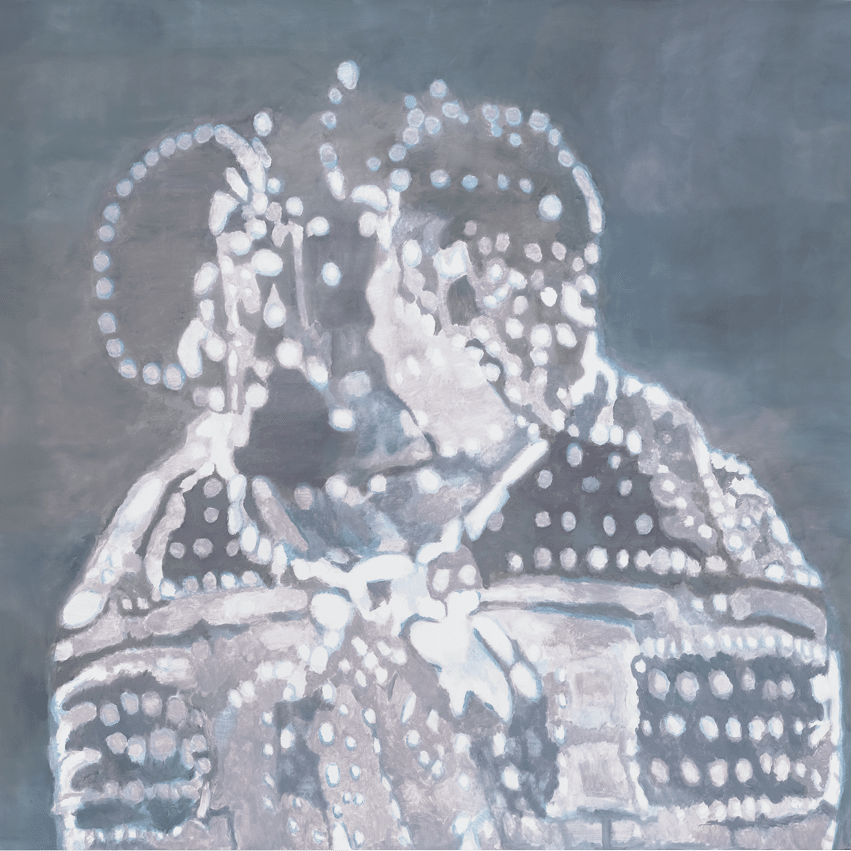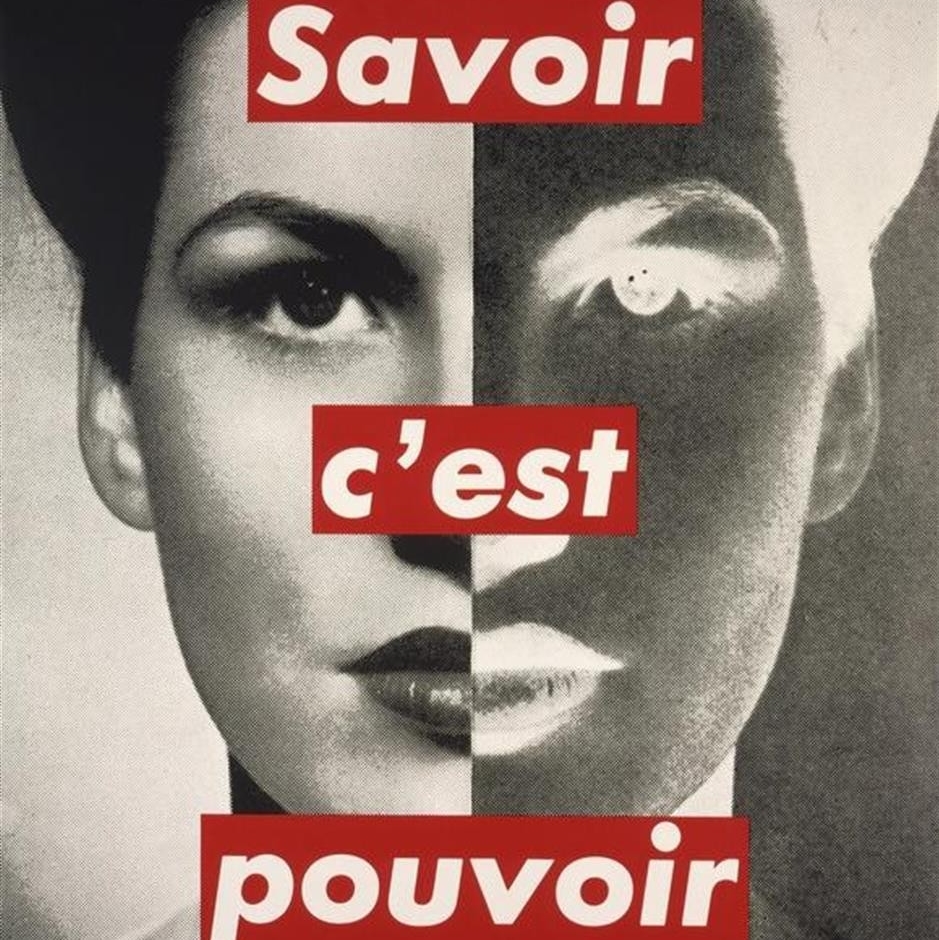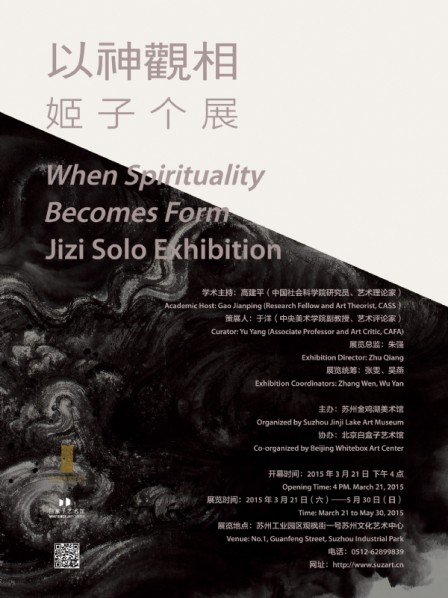
The painter Jizi has been engaged in painting for more than 50 years, through various stages of art practice, he has been immersed in independent exploration, the artist gradually deepened the use of Chinese ink painting in art, understanding the principles, transporting and transforming the methods, with an accumulation of decades of artistic attainment, to increasingly form his own language and theory of painting. The famous critic Jia Fangzhou evaluated the latest work of Jizi which was a “mutation of painting style”, entering the most enjoyable stage of “transformation in an old age”. The well-known critic Yin Shuangxi thought that “The ink of Jizi is diverted from tradition, but does not stick to tradition, is diverted from nature, but also transcends nature”, “it is obvious that his aesthetic interest is not the traditional Chinese landscape painting that closely views landscapes and takes men as visual subjects, but the macro landscape containing modern understanding and rethinking of the universe.”

Jizi, At the Beginning of Era, 624 x 240 cm, 2011
The well-known American art critic and aesthetic Danto thought on it from a Western visual experience, “in Jizi’s work, mountains and rivers are boiled, tremulous, as if the turbulent water. … These works have the same sense of wildness, almost havea sense of the original. To some extent, they show the mystery hidden in nature.”
For the significance of Jizi’s ink landscape, Jia Fangzhou evaluated and said that, “the painter breaks through the traditional pattern of landscape painting and the use of the usual methods, refusing to follow the previous physical time order, in order to fully enter the subjective expressive state of freely mobilizing time and space”, “with the perspective and means of a modern man, from a variety of perspectives to show the diversified appearances of nature, to create a forceful and sublime “landscape of ink” full of hovering airflows.

Jizi, The Winds from Eight Directions, ink on paper, 184 x 145 cm, 2009
By David Brubaker and Wang Chunchen
A case study in the contemporary practice of Chinese ink painting
Resolves not only the history of aesthetics issues but also the concern about authentic art criticism
Presents a unique perspective on thinking about and understanding ink painting issues
This interdisciplinary study promotes the thesis that some contemporary Chinese ink artists succeed in using principles of traditional Chinese aesthetics to convey the union of self with nature, others and the universe. The investigation is a case study of the writings and paintings of Jizi, an ink-wash artist in Beijing, who combines images of icy mountains, Tibetan landscapes, cosmic vistas, and enclosures of personal existence. Jizi’s success in expressing the unification of these dimensions is confirmed by developing and applying an interpretation of Jing Hao’s classic description of the authentic image, which resonates with the vitality of nature. To find words for resonance with visible nature, the inquiry extends to such writers as Li Zehou, Arthur Danto and Maurice Merleau-Ponty. In short, an account of authenticity in Chinese ink painting is offered experimentally as a means for assessing whether contemporary Chinese artworks are expressive of Chinese philosophy and culture. The text includes stylistic comparisons with artists. The result is an appreciation of the healing influence of Chinese ink art in a global culture that is vibrant, complex, diverse and affirming of the present.
In this rigorous, far-reaching, and original analysis of contemporary ink art painting, Brubaker and Wang focus our attention on the work of one independent painter, Jizi, whose work exemplifies an uncanny marriage between ink art and contemporary concerns. . In the central chapters, Brubaker persuasively argues that in this work Jizi captures principles essential to traditional Chinese aesthetics—articulated in terms of wholeness, emptiness, and visibility--that enable the works to express the unification of the self with nature and the universe as a whole. It does this through forms that are innovative and part of artistic practices and discourses that are becoming increasingly global.
Mary Wiseman,
The City University of New York
This important publication focuses on the evocative ink wash paintings of an artist who has, over the course of decades, demonstrated an unwavering commitment to exploring the technical, formal, philosophical and experiential dimensions of his chosen medium. The essays, commentaries and critical reflections collected in this volume present unique perspectives on Jizi's practice, significantly contributing to the growing body of scholarship on the continuing vitality of the ink wash tradition in the global contemporary.
Dr. Wenny Teo,
The Courtauld Institute of Art
Through an in-depth study of the ink painting practice of contemporary Chinese artist Jizi, the authors discover Chinese ink painting’s philosophical perspectives, cosmic foundations, and contemporary possibilities. They also uncovered a way to enter into the artist’s rich and profound spiritual world; through Jizi’s expansive visual patterning and refined spiritual imagery, he activates a long and great cultural tradition.
Yu Yang,
Central Academy of Fine Arts
About the exhibition
Academic Host: Gao Jianping (Research Fellow and Art Theorist, CASS)
Curator: Yu Yang (Associate Professor of Art Critic, CAFA)
Exhibition Director: Zhu Qiang
Exhibition Coordinators: Zhang Wen, Wu Yan
Organized by Suzhou Jinji Lake Art Museum
Co-organized by Beijing White Box Art Center
Duration: March 21 (Saturday) - May 30, 2015 (Sunday)
Venue: Suzhou Jinji Lake Art Museum
Courtesy of the artist and Suzhou Jinji Lake Art Museum, translated by Chen Peihua and edited by Sue/CAFA ART INFO


